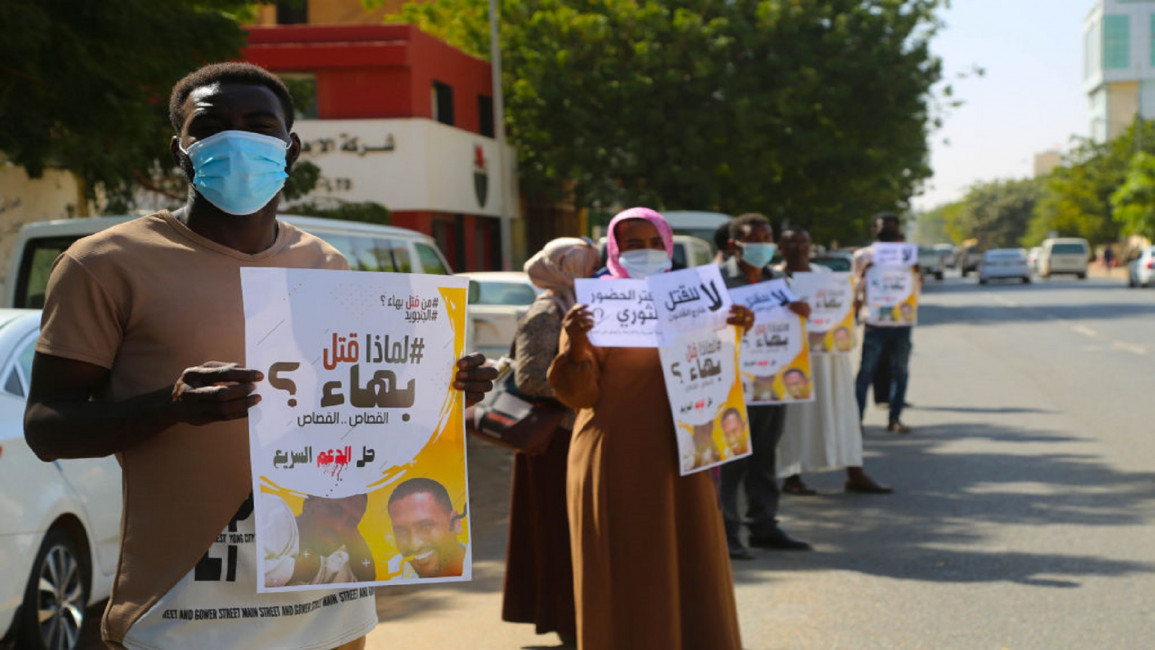Anti-government protests erupt in Sudan following surging fuel prices
Protesters took to the streets earlier this week, also condemning escalating prices of bread and medicine, and the scarcity of some goods. Some also demanded the resignation of Sudanese prime minister Abdullah Hamdok.
The ministry of finance on Friday announced an increase of gasoline prices from 121 pounds ($2.2) to 127 pounds ($2.3) per litre.
The ministry also changed the price of a litre of diesel from 112 pounds ($2.03) to 115 pounds ($ 2.08).
The Undersecretary of the Ministry of Energy and Mining Hamid Suleiman Hamed justified the changes in an interview with Anadolu Agency, citing the increase in oil prices in the global markets. He denied that the devaluation of the Sudanese pound prompted the recent adjustment of fuel prices.
Twitter Post
|
Several students joined demonstrations elsewhere in Sudan to protest against a 250 percent increase of bread prices.
“We were already struggling to survive, but now life has become impossible” one student in Ed Damazin told Dabanga, an independent Sudanese outlet.
“The price of a subsidised loaf of bread in Ed Damazin increased from SDG 2 to SDG 5, while the transportation tariff rose from SDG 30 to SDG 100,” the student said.
Bakery owners in Kordofan also went on strike to demand better bread subsidies.
Security forces reportedly responded with violence, using rubber bullets and tear gas against protestors.
Sudan has faced a severe economic crisis worsened by the Covid-19 pandemic, with growing inflation and chronic hard currency shortages giving rise to a volatile black market.
Protestors have also condemned reported violence from the Rapid Special Forces (RSF), which drew its personnel from the Janjaweed – the faction responsible for war crimes in Darfur and killing of protestors before the transitional government’s formation.
The transitional government was formed in August 2019 and is comprised of military and civilian movements. The agreement followed a crackdown from the military which assumed power after dictator Omar Bashir was ousted by a revolution, driven by opposition to corruption and dire living conditions.
Meanwhile, Sudanese protestors have continued demonstrations against a controversial normalisation agreement with Israel, with some burning Israeli flags earlier this week and demanding a reversal of the deal.
Follow us on Facebook, Twitter and Instagram to stay connected


